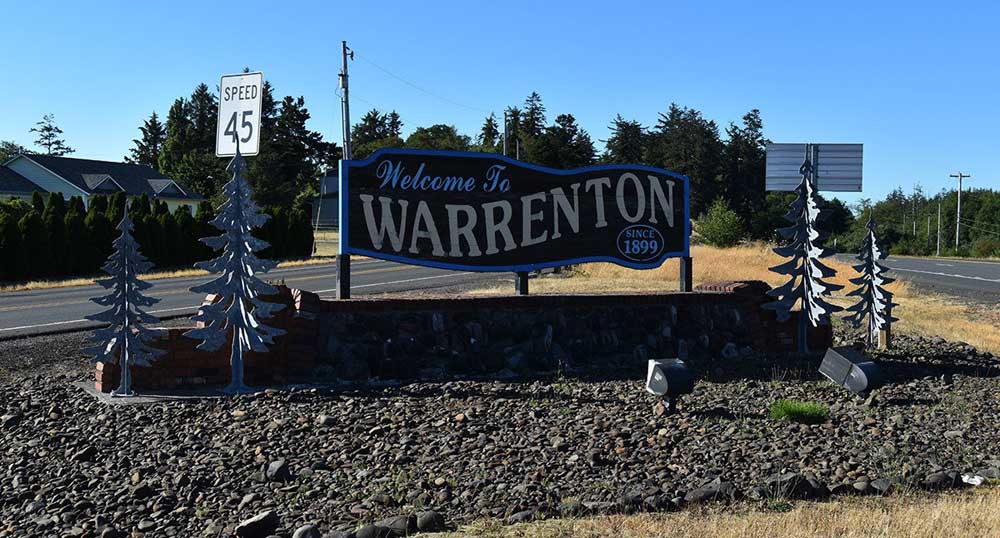Community theater
Published 5:00 pm Wednesday, October 13, 2010
Back in my college years, my aim was to become an actor. I did a fair bit of acting, including a bit of professional work early on. I even graduated with two degrees in theater, but it wasn’t long before I was lured into work behind the camera where I spent a career as a writer/producer/director. I did a bit of performing over the years on the side … for pay. I never found myself drawn to the unpaid commitment of community theater, although there are myriad of opportunities in Portland, where I hailed from.
At the coast, there are a surprising number of community theaters and most of the performing, directing, house and backstage work is unpaid or for token payment. Community theater is an irresistible calling to a range of people, some who travel long distances to participate. For those who visit and live in the Columbia-Pacific region, the local theater scene is part of the rich cultural fabric that makes the coast such a wonderful place. But what is so compelling that they will devote countless hours and boundless energy to what is – however rewarding – a demanding and sometimes daunting charge?
The Barn Community Playhouse
Chris Chiola keeps busy doing a bit of everything at The Barn in Tillamook. His reward lies in the role the theater plays in his community. “Tillamook and the surrounding towns are fairly small. We have the beach, the forests and mountains in the daytime, but nighttime activity is limited here, so the theater offers entertainment for our tourists and locals. The theater is also a kind of a gathering place for those who just moved to town and don’t know anybody. They come to auditions and it’s a great way to meet people.”
The Coaster Theatre
The Coaster was originally a roller rink and was converted into a theater in 1972. It’s an iconic feature of Cannon Beach and immensely popular with locals and tourists alike. David Robinson is now appearing in his 14th show in an 18-year span (now that’s commitment). His reason is straightforward: “Fun and friends. I love stepping into characters, playing dress-up, make-believe, and … there is always a playful sense among fellow actors. When you go through the hundreds of hours of rehearsal and production time together, including all the anxiety, the waiting backstage, the getting off-book, the adrenaline rush of opening night and the strange mix of relief and loss after closing night, our lives with one another are changed, and friendships are forged.”
Another longtime actor with more than 50 roles to his credit is Paul Dueber. For Paul, it’s the magic of live performance. “I find that regardless of the number of times I present the character, it evolves and changes with every performance. Nothing is static. It constantly adjusts to the other characters on stage and to the demands placed by live performance. The thrill of live theater is very definitely part of that puzzle of Why we do this.”
For actor Robert “Slab” Slabinski, it’s the audience. “I like making folks happy, and whatever I can do to achieve that, I will do … getting a smile or laugh out of someone who is not in the best of spirits is enough for me. If it means driving 50 miles round-trip and spending three to four hours, four or five days a week, so be it. It is a small price to pay for doing something I love.”
Actor John Grosshuesch echoes that. “As to being unpaid – I don’t even think about it. For me, hearing the applause is an awfully fine way to get paid; it’s quite addictive. We may not get paid but we are a part of something wonderful and will pass this great place onto future generations.”
Astor Street Opry Company
Now in its 26th season in Astoria, ASOC?presents its annual “Shanghaied in Astoria” and a number of other productions each year. Del Corbett, a retired theater arts professor, has been directing plays there since the 1980s. His joy is the human growth people gain from the stage. “Aristotle, I think, said ‘The proper study of man is man,’ so it is worthwhile trying to help promote that in the world. Our genetic instinct (to perform) is as old as upright man. The stage is a channel for that instinct … Acting builds self-confidence, and there’s teaching value in that for me and the actor.”
Pier Pressure Productions
The newly formed company was founded by, among others, Susi Brown, a longtime director in the Astoria area. It could be argued that directing is even more of a commitment because it begins before the actors start to work. In a community theater, there is also the added dimension that the director often wears many other hats – from developing a program to publicity.
So what motivates that kind of commitment? Brown had a ready answer: “Passion for the art. It’s also the creativity. The way the show evolves from the page to the stage. While I wouldn’t always want to do it for free, I don’t mind doing it sometimes for very little or no money because the rewards are so much better than the money.” She added, laughing, “I taught high school for 31 years, so I’m fairly used to not working for huge wages.”
Peninsula Players
The 2nd Story Playhouse in Ilwaco, Wash., houses the Peninsula Players. Karl Johnson does a bit of everything and has found community theater therapeutic. “I had some rough times in the last year or two, and the theater was a refuge for me. It would help keep me sane. If I had a bad day with work or other issues, I was always in a good mood after a rehearsal. Even though the players would change, the family atmosphere remained. We laughed, cried, fought and made up. It has become an integral part of my life.”
George and Rose Powers never participated in a community theater until moving to the coast. George, a retired Navy diver who later worked in forest security, was amazed he could act at all. “I found that I enjoyed being on stage. Being retired, I need to keep my mind busy, and feel I am well-paid by the audience response. I think it helps the community by using people of every age, from 5 to 85.” Rose simply decided to try something new. She wound up writing a one-act play performed at the theater. “I hadn’t done any writing for many years, but it was a thrill to see my play made real by the actors. It’s inspired me to write another short play and consider writing a full-length one. My plan for retirement was to do things that are good for me, good for the community and fun to do. In my involvement, I think I have achieved all three.”
For actor Tracy Roach, it was personal discovery. “It was a renewed sense of identity after spending the last 18 years as a mom. My children are nearly out of the house now, with very active social lives. I figured I could either spend my evenings watching Wheel Of Fortune, or go play with grownups on stage! The unpaid time and energy I put into theatrical endeavors, to me, is a wonderfully creative outlet … it’s given my self-esteem a boost!”
The Willapa Players
The Players perform in the Hanna House Theater in Raymond, Wash. Rayetta Kenworthy has been acting there for about 15 years. For her, acting is also a very personal thing. “I enjoy being somebody else for a little while. When I was growing up, I was in several different foster homes and then married for 33 years to a man who was very controlling, so it’s fun to don a costume, don a wig and become somebody else. That’s what makes me do it. It’s a personal release to be somebody else. It’s like being a kid again.” Maybe actor Bob Lindberg summed it up best: “The excitement of the live audience participation, the smell of the greasepaint and lights bring a high that probably no drug can achieve.”
In the end, after all the explanations, all the attempts to put this “why” into words, it simply boils down to the fact that these dedicated people are helpless in the face of their desire. There is a deep need to do this. Despite the long hours, the personal demands, the stress and pressures of performing and mounting a show, often at the expense of something else in their lives, they do it and do it joyfully, because inside beats the heart of an artist … and that heart would not beat as strong without their stage.





